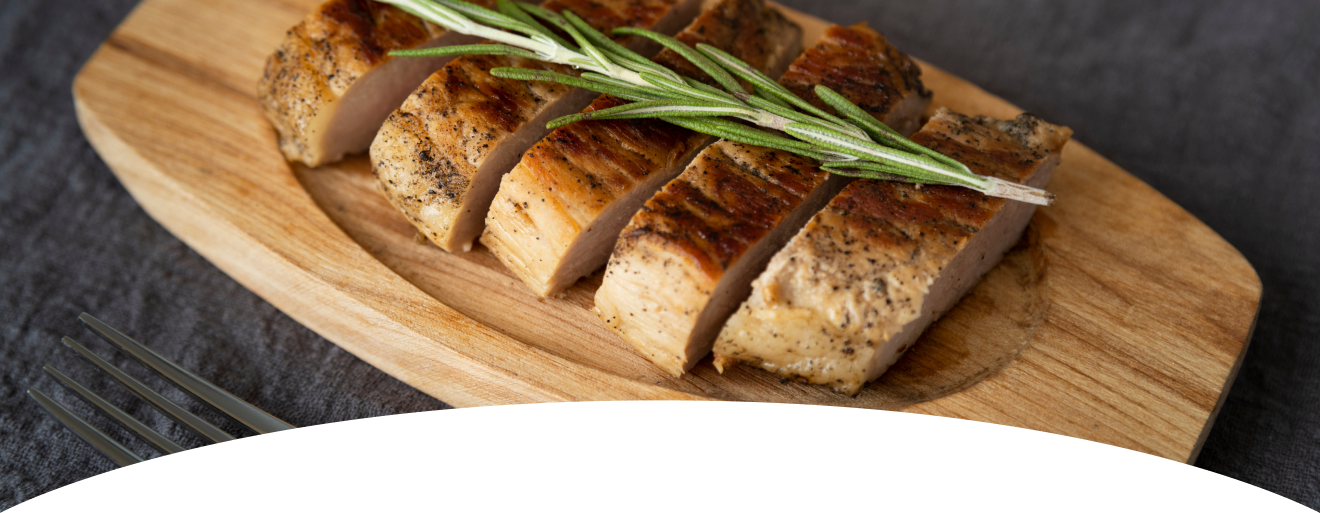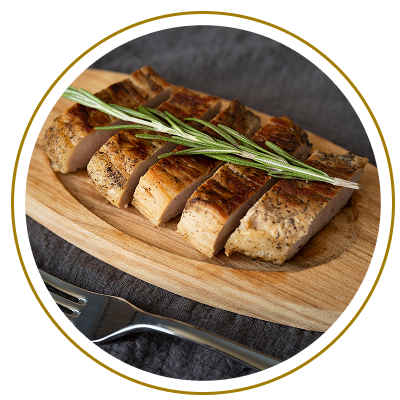
About Seitan
Seitan: A Versatile Plant-Based Protein
Seitan, often called "wheat meat," is a popular meat alternative that has gained significant attention in plant-based diets and cooking. Made primarily from wheat gluten, it is a protein-packed food that has a firm, chewy texture resembling meat, making it an ideal substitute in various dishes. Despite its name, seitan does not contain any animal products and is an excellent choice for those looking to reduce their meat consumption while still enjoying the texture and protein benefits of meat. Its composition consists mainly of gluten, the protein found in wheat, which is washed out from the wheat flour dough to leave behind the gluten. This process results in a dense, protein-rich product that can be flavored and cooked in a variety of ways.
History of Seitan
The origins of seitan trace back over a thousand years to ancient China, where it was first developed by Buddhist monks. These monks, who practiced vegetarianism as part of their spiritual discipline, sought a substitute for meat that would closely mimic its texture and protein content. Seitan became an important food staple for Buddhist communities in China, Japan, and Korea. Its use later spread to other parts of Asia, particularly in Japan, where it was called "fu" and used as a protein source in many traditional dishes.
In the 20th century, seitan became more widely known in the West, particularly during the rise of vegetarian and vegan movements in the 1960s and 1970s. Its popularity grew as people sought plant-based alternatives to meat that were not only healthy but also environmentally sustainable. Today, seitan is commonly found in grocery stores and is used by home cooks and chefs worldwide as a versatile meat substitute.

Nutritional and Ecological Values

Nutritional Benefits
Seitan is primarily composed of protein, with about 25 grams of protein per 3.5 ounces (100 grams), making it one of the most protein-dense plant-based foods available. It is low in fat, with very little saturated fat, and contains no cholesterol, which makes it a heart-healthy option. Additionally, seitan is rich in certain minerals such as selenium, iron, and calcium, but it is important to note that it is low in certain essential amino acids, particularly lysine. For this reason, it's best to pair seitan with other plant-based foods like legumes or grains to ensure a complete protein profile.

Ecological Benefits
From an environmental perspective, seitan is a more sustainable protein source compared to animal-based meats. Producing seitan requires significantly fewer natural resources such as water and land, and it generates less greenhouse gas emissions. Wheat, the primary ingredient in seitan, is a crop that can be grown with a relatively low environmental footprint, especially when compared to the extensive resources needed for livestock farming. As concerns about climate change and environmental degradation grow, choosing plant-based options like seitan can contribute to reducing one's ecological impact.
How to Make Seitan


Making seitan at home is a relatively simple process that requires just a few ingredients: wheat flour, water, and a pinch of salt. The process begins by combining the flour and water to form a dough. This dough is then kneaded to develop the gluten and washed under water to remove the starch. What remains after this washing process is the gluten, which can be boiled or steamed to create seitan.
To add flavor, the seitan can be marinated in a variety of seasonings such as soy sauce, garlic, ginger, or herbs. Cooking methods also vary: it can be sautéed, grilled, baked, or added to soups and stews. Pre-made seitan can also be found in stores, but making it from scratch allows for greater control over the flavor and texture.
A Great Ingredient to Cook With
Seitan is an excellent addition to any kitchen, especially for those looking for plant-based protein alternatives. It offers a satisfying texture that mimics meat, making it ideal for use in a wide variety of dishes, from stir-fries to sandwiches. Nutritionally, it provides a high-quality protein source and is low in fat and cholesterol, making it a heart-healthy choice. Environmentally, it stands out as a sustainable and eco-friendly option compared to animal-based proteins. Whether you're vegan, vegetarian, or simply looking to reduce your meat intake, seitan is a versatile and nutritious ingredient that can be used in countless recipes, making it a valuable food for both health-conscious individuals and eco-aware cooks.